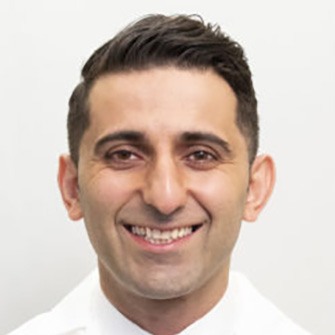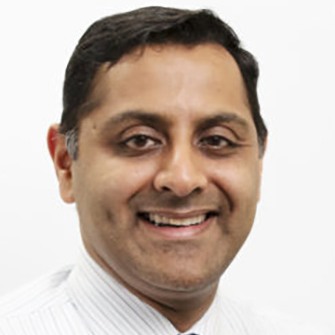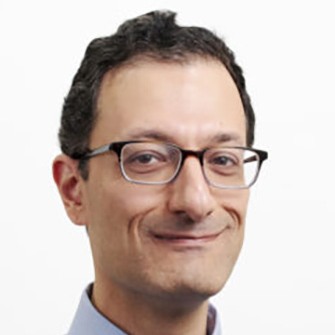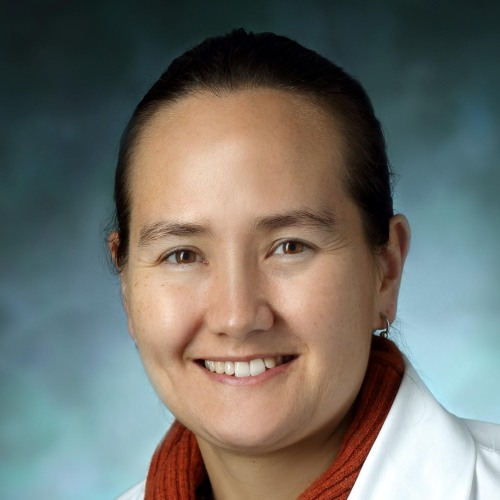- Focus on clinical outcomes and care delivery for patients with ischemic and hemorrhagic stroke, including outcomes after carotid surgery.
- Aneurysm treatment, and in patients treated with thrombectomy for large vessel occlusion.
Cerebrovascular/Skull Base Surgery/Endovascular Neurosurgery
Delivering comprehensive care for vascular and skull base conditions, with innovation across open, endovascular, and minimally invasive techniques.
Cerebrovascular/Skull Base Surgery/Endovascular Neurosurgery
Delivering comprehensive care for vascular and skull base conditions, with innovation across open, endovascular, and minimally invasive techniques.
Overview
The Cerebrovascular/Skull Base Surgery/Endovascular Neurosurgery Division encompasses the Departments of Neurosurgery, Interventional Neuroradiology, Neurology, and Radiation Oncology, all of which work together with a focus on a multidisciplinary approach to the treatment and care of various neurovascular diseases (diseases affecting the blood vessels of the nervous system).
We treat conditions that affect blood vessels of the brain, neck, and spine including intracranial aneurysms, extra- and intra-cranial atherosclerostic disease, intracerebral hematoma, arteriovenous malformations (AVM), dural arterio-venous fistulae (dAVF), stroke, moyamoya disease, microvascular compression syndromes such as trigeminal neuralgia, and a host of less common conditions. Our team works to develop individualized treatment plans for each patient, as exemplified by weekly cerebrovascular conference, where patients are discussed and reviewed in detail by the multidisciplinary team. In addition, we have multidisciplinary cerebrovascular clinics every week where our team evaluates all patients in a comprehensive manner. Treatment options range from surgical interventions to more conservative treatment with minimally invasive endovascular procedures such as stenting, radiation therapy, and sometimes prescription medication.
When encountered with a neurovascular condition our team of experts meets and decides on the best treatment available. We have the most advanced imaging capabilities including MRI, non-invasive vascular evaluation with MRA and CTA, detailed evaluation of cerebral blood flow using MR perfusion, and conventional cerebral Angiography. If surgery is required our suites and operative rooms are equipped with advanced intraoperative equipment such as intraoperative CT scanners and surgical microscopes with non-invasive ICG monitoring.
Treatment may include neurointerventional surgery, which means treating the blood vessel disease from within the blood vessel itself, using a catheter and imaging technology to precisely target the condition. Many strokes are treated by removing the blood clot from within the blood vessel in this way. Our division’s clinical research is also deeply involved with outcomes and improving care of these patients, as well as those with complex aneurysms treated using flow diverting device, which is an advanced technique used to treat previously untreatable aneurysms.
People
Division Director
-

Curtis E. Doberstein, MD
Professor of Neurosurgery, Executive Vice Chair, Clinical Operations, Director, Cerebrovascular and Skull-base Surgery Division, Director, Neurosurgery Residency Training Program
Combined Neurosurgery and Neuro-Interventional Clinical Faculty
-

Radmehr Torabi, MD
Assistant Professor of Neurosurgery, Director of Endovascular Neurosurgery Program, Director of Cerebrovascular Surgery and Endovascular Neurosurgery Outcomes Laboratory, Co-Director of Comprehensive Stroke Center -

Krisztina Moldovan, MD
Assistant Professor of Neurosurgery, Co-Director of Endovascular Neurosurgery Program, Co-Director of Cerebrovascular Surgery and Endovascular Neurosurgery Outcomes Laboratory
Diagnostic and Interventional Radiology
-

Jerrold L. Boxerman, MD, PhD, FACR
Professor of Diagnostic Imaging, Section Director, Neuroradiology, Medical Director, Brain Science Program, MRI Research Facility -

Jeffrey Brody, MD
Associate Professor of Diagnostic Imaging, Clinician Educator -

Lawrence Davis, MD
Assistant Professor of Diagnostic Imaging, Clinician Educator -

Gaurav Jindal, MD
Associate Professor of Diagnostic Imaging, Clinician Educator -

Richard L. Gold, MD
Associate Professor of Radiology, Clinician Educator -

Richard Haas, MD
Associate Professor, Clinician Educator, Diagnostic Imaging, Neurosurgery, & Neurology -

Mahesh Jayaraman, MD
Charles and Elfriede Collis-Frances Weeden Gibson Professor of Diagnostic Imaging, Chair of Diagnostic Imaging, Director, Neurovascular Center, Professor of Neurology, Professor of Neurosurgery -

Jeffrey M. Rogg, MD, FACR
Associate Professor of Diagnostic Imaging, Director, Neuroradiology, Medical Director, Magnetic Resonance Imaging, Rhode Island Hospital -

Krish K. Singhal, MD
Assistant Professor of Diagnostic Imaging, Clinician Educator -

Glenn A. Tung, MD, FACR
Professor of Diagnostic Imaging -

Dylan Wolman, MD
Assistant Professor of Diagnostic Imaging
Neurocritical Care
-

Eugenie Atallah, MD
Assistant Professor of Neurosurgery, Assistant Professor of Neurology -

Torrey Boland Birch, MD
Associate Professor of Neurology, Clinician Educator -

Farhan Khan, MD
Assistant Professor of Neurology -

Leslie Kimpler, MD
Assistant Professor of Neurosurgery, Assistant Professor of Neurology, Clinician Educator -

Ali Mahta, MD
Adjunct Associate Professor of Neurology, Adjunct Associate Professor of Neurosurgery, Academic Neurointensivist, Neurologist -

N. Stevenson Potter, MD, PhD
Assistant Professor of Neurology and Neurosurgery, Neurologist, Division of Neurocritical Care -

Thanujaa Subramanian, MD
Assistant Professor of Neurosurgery, Assistant Professor of Neurology
Vascular Neurologists
-

Karen Furie, MD
Samuel I. Kennison, MD, and Bertha S. Kennison Professor of Clinical Neuroscience, Chair of Neurology, Professor of Neurology -

Shadi Yaghi, MD
Professor of Neurology -

Tina Burton, MD
Associate Professor of Neurology -

Elizabeth Perelstein, MD
Assistant Professor of Neurology -

Christoph Stretz, MD
Associate Professor of Neurology, Associate Professor of Neurosurgery
Neurosurgical Oncology
-

Deus J. Cielo, MD
Associate Professor of Neurosurgery, Vice-Chair for Diversity, Inclusion and Equity, Director, Peripheral Nerve Surgery Division, Co – Director of Stereotactic Radiosurgery Program, Director, Memorial Hospital Neurosurgery Program
Related Conditions
Research
Technology
- MRI/MR Angiography
- MRI RAPID /MR Perfusion
- CT Angiography
- CT Perfusion
- Cerebral Angiography
- PET scanner
- Intraoperative CT scanner
- Endovascular Aneurysm Treatment
- Coil embolization
- Balloon and stent remodeling
- Flow Diverting Stents
- Intrasaccular flow disruptors
- BrainPath/Myriad Minimally Invasive Clot
Evacuation System - LINAC (radiation therapy)
- Gamma Knife
- CyberKnife
- Surgical microscope with ICG
- AI powered image viewer identifying large
vessel occlusions - Cerevasc Eshunt
- MMA Embolization
- TCAR
- Minimally Invasive Clot Evacuation System
- LITT
- Cerebrospinal fluid venous fistula embolization
- Venous stenting